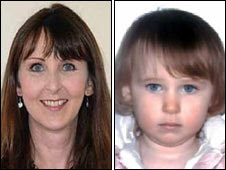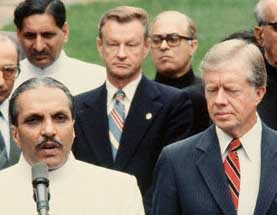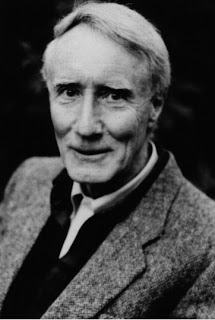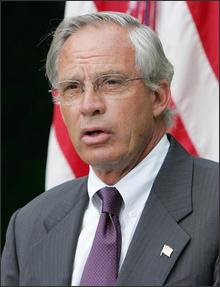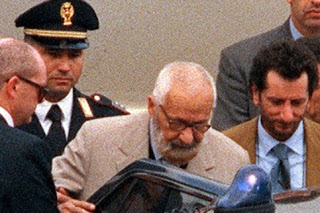Of course there are positive and negative aspects of this.
If we anticipate having a happy holiday, we are more likely to have a happy holiday.
If we believe a placebo is effective, we are more likely to be cured by it.
If we believe that there is no God, we are less likely to notice the evidence for an after life.

Indonesians expecting to be happy?
Dr Garry said: ‘Recent research suggests that some of psychological science’s most intriguing findings may be driven, at least in part, by suggestion and expectancies.
‘For example, a scientist, who knows what the hypothesis of an experiment is, might unwittingly lead subjects to produce the hypothesized effect - for reasons that have nothing to do with the experiment itself.’
If the media has suggested to us that Bashar Assad is a bad person, we are more likely to believe the anti Assad propaganda.
Walk through the jungle expecting to see snakes and you may well see them.
Walk through the jungle not expecting to see snakes and you probably won't see any.
http://www.dailymail.co.uk/sciencetech/article-2156431/Why-optimists-usually-win-Simply-thinking-positive-thoughts-lead-people-overcome-tough-challenges.html#ixzz1xHO7FlFW
Voltaire was a pessimist.
Voltaire, like Buddha, could see that there is suffering in this world.
"Do you believe," said Candide, "that men have always massacred each other as they do to-day, that they have always been liars, cheats, traitors, ingrates, brigands, idiots, thieves, scoundrels, gluttons, drunkards, misers, envious, ambitious, bloody-minded, calumniators, debauchees, fanatics, hypocrites, and fools?"
"Do you believe," said Martin, "that hawks have always eaten pigeons when they have found them?"
Voltaire appears to be pessimistic about human nature.
Swiss psychiatrist Carl Jung (1875-1961) said in Memories, Dreams, Reflections:
"Natural history tells us of a haphazard and casual transformation of species over hundreds of millions of years of devouring and being devoured...
"But the history of the mind offers a different picture.
"Here the miracle of reflecting consciousness intervenes."
In other words, some beings may be becoming more kindly.

Optimists or pessimists?
He suggests that evolutionary developments do not emerge in a random fashion. ("David Bohm and the Implicate Order" by David Pratt)

Standford neurophysiologist Karl Pribram believes in the holographic nature of reality.
Every part of a hologram contains all the information possessed by the whole.
In a holographic universe there are no limits to the extent to which we can alter reality.
What we see as reality is a canvas where we can draw any picture we want.

The Buddhists believe that what we are thinking now, is what we will become.
Research has suggested that Buddhists are able to get their brains to feel happiness.
According to Owen Flanagan, professor of philosophy at DukeUniversity in North Carolina, Buddhists appear to be able to stimulate a part of their brain which produces positive emotions and a feeling of well being.
Writing in New Scientist, Professor Flanagan referred to findings of a study by Richard Davidson, of the University of Wisconsin, who used scanners to analyse regions of a Buddhist's brain.
Parts of Buddhists brains, linked to happiness, appear to "light up" consistently.
"The most reasonable hypothesis is there is something about conscientious Buddhist practice that results in the kind of happiness we all seek," Davidson writes. (Happiness. A Buddhist perspective)

Helping unhappy people to be happy brings happiness.
A good doctor entering a ward full of sick children does not allow himself to feel depressed.
The good doctor gets on with trying to make the children happy.
Tibetan Bodhisattva Langri Tangpa wrote:
Whenever I see unfortunate beings
Oppressed by evil and violent suffering,
May I cherish them as I had found
A rare and precious treasure.
The good Buddhist empties himself (or herself) of egotism, and is therefore not going to be offended by insults.
When others out of jealousy
Harm me or insult me,
May I take defeat upon myself
And offer them the victory
The happy person is the one who forgets about his own individual happiness and concentrates on making others happy. (Buddhism - Jodo Shinsu - What Is Happiness?)
1. Learn how to save yourself by using direct and personal experience.
2. There is continual change, a continual cycle involving birth and death.
Consciousness is continuous.
It is forever looking for new kinds of self-expression.
Life is a continous flow.
If you know there is a tsunami coming, don't stay on the beach guarding your possessions.
If you cling on to things, you will suffer, because you are resisting the flow.
3. There is only one 'ultimate reality'.
It does not change.
It is beyond our understanding.
We are all linked to it.
We are all part of the one team.

We are the creator of our circumstances.
By right thought and right action we can gradually purify ourselves and eventually reach enlightenment and Nirvana and beyond.
5. We are happiest as a happy team.
We are all inter-linked and should feel compassion for everything from trees to Thais and from jaguars to Jews.
Compassion is the "Law of laws".
6. Imagine we have an urge to win at golf by cheating.
Imagine we have an urge to be the hero of the football match, by monopolising the ball.
Suffering is caused by such wrong urges.
7. To end suffering, we should have
(1) Right Views,
(2) Right Aims or Motives,
(3) Right Speech,
(4) Right Acts,
(5) Right Livelihood,
(6) Right Effort,
(7) Right Concentration or mind-development,
(8) "Cease to do evil, learn to do good, cleanse your own heart: this is the Teaching of the Buddhas".
8. Nirvana, the extinction of the limitations of selfhood, is attainable on earth.
"Look within; thou art Buddha".
9. Follow the path between the opposites, avoiding all extremes.
10. Meditation helps us to refrain from mental and emotional attachment to "the passing show".
11. The Buddha said: "Work out your own salvation" using your intuition.
Each man suffers the consequences of his own acts, and learns thereby, while helping his fellow man to the same deliverance.
12. Buddhism does not deny the existence of God or soul, though it places its own meaning on these terms. Buddhism has no dogmas, and points to man alone as the creator of his present life and sole designer of his destiny.









